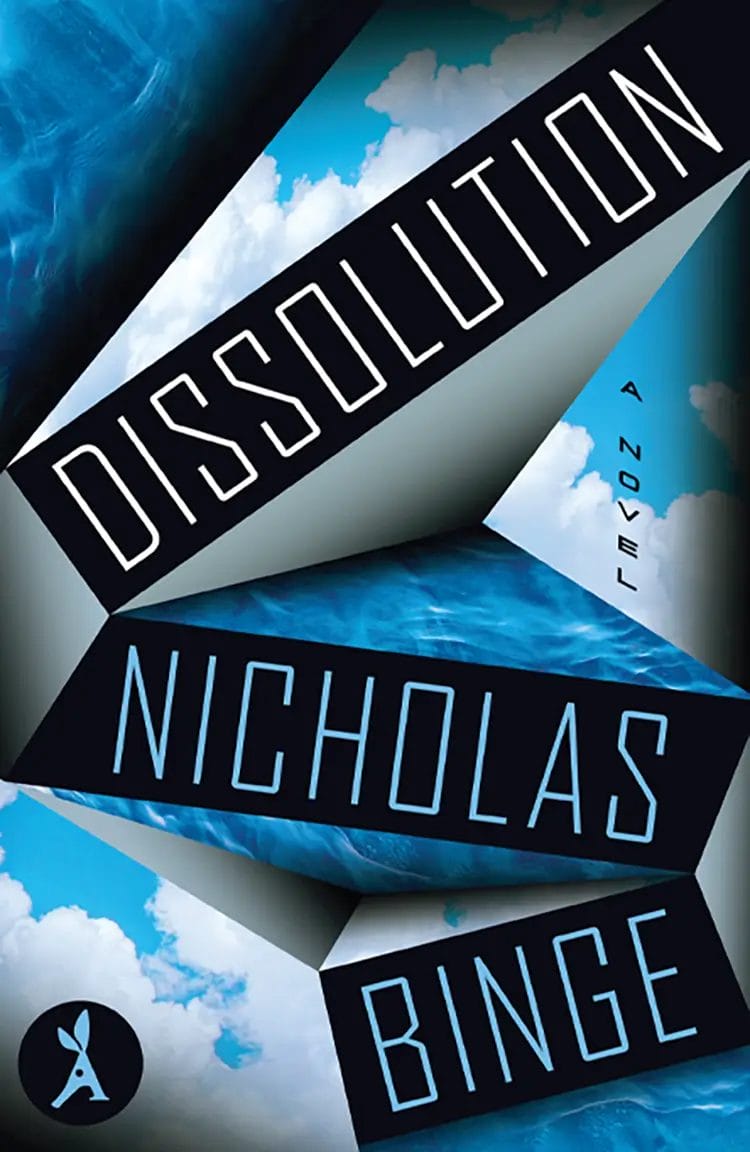

Dissolution
A woman dives into her husband’s memories to uncover a decades-old feud threatening reality itself in this staggering technothriller from the bestselling author of Ascension.
Maggie Webb has lived the last decade caring for elderly husband, Stanley, as memory loss gradually erases all the beautiful moments they created together. It’s the loneliest she’s ever felt in her life.
When a mysterious stranger named Hassan appears at her door, he reveals a shocking truth: Stanley isn’t losing his memories. Someone is actively removing them to hide a long-buried secret from coming to light. If Maggie does what she’s told, she can reverse it. She can get her husband back.
Led by Hassan and his technological marvels, Maggie breaks into her husband’s mind, probing the depths of his past in an effort to save him. The deeper she dives, the more she unravels a mystery spanning continents and centuries, each layer more complex than the last.
But Hassan cannot be trusted. Not just memories are disappearing, but pieces of reality itself. If Maggie cannot find out what Stanley did all those years ago, and what Hassan is after now, she risks far more than her husband’s life. The very course of human history hangs in the balance.
My thoughts:
This was one of those books where I spent the first half teetering between “Wait, what is happening?” and “Ooh, there’s something big about to happen, and I can’t wait to find out what it is.” This is a mind-bendy, memory-warping sci-fi mystery that requires a bit of patience – but if you’re willing to sit with the weirdness, there’s a pretty compelling story here.
The book flips between two timelines. In the present(ish) day, we’re following a man named Hassan as he interviews an elderly woman named Margaret – aka Maggie – who is caring for her husband Stanley, who appears to be suffering from Alzheimer’s. But then Hassan drops a bomb: Stanley’s memories aren’t fading due to age or illness – someone is stealing them. Naturally, Maggie is all about helping Hassan figure out who’s behind it and why, and in order to do so, she’ll need to explore Stanley’s memories. Oh, and apparently, these memories might hold the key to saving the world. No pressure.
Then we get the flashback chapters set in the 1950s, where a young Stanley is at university, doing a deep dive into the nature of memory, time, and reality itself. It starts as an academic curiosity with one of his professors and a couple of other classmates but quickly veers into obsession territory, and before you know it, he’s tangled up in theories of time travel and some seriously shady science.
Binge writes with a cinematic flair that makes it easy to picture everything, even the more abstract, reality-bending sequences. It’s no surprise that this has been optioned for a movie adaptation. And despite the high-concept plot, the emotional core – the love story between Maggie and Stanley – is what really stuck with me. Their relationship felt grounded and authentic, which gave the story its heart.
Now, I’ll admit: there were moments in this book where I wasn’t sure I had a firm grip on what was going on. Some chapters were vivid, and bordered on unsettling, while others were not entirely clear and confused the hell out of me. But somehow, I didn’t mind because the confusion felt intentional, like I was supposed to be just a little off-balance, questioning what was real and what was constructed, just like Maggie. The slow unraveling of clues is what kept me pushing forward. I knew that, eventually, the bigger picture would become clear. Binge does a great job of giving you just enough information to keep you hooked. I was fully invested in Maggie’s journey – not just her quest to save Stanley but her emotional reckoning with the life they built, the love they shared, and the parts of him she never really knew.
Hassan, meanwhile, is one of those characters where you just know something is off from the start, but you can’t quite pin down what. Is he really helping Maggie, or does he have something nefarious up his sleeve? I kept flipping back and forth on whether to trust him, and that ambiguity was one of the book’s strengths.
That said, the ending didn’t quite land for me. After all the build-up, all the emotional weight, and suspense, I was expecting something a bit more explosive or revelatory. Instead, it leaned more toward the poetic and emotional, which isn’t a bad choice – it just wasn’t the payoff I personally wanted. I wanted a big “Whoa!” moment and got more of a quiet “Hmm.” Still satisfying, just a different flavor than I was hoping for.
If you like your sci-fi with a hefty dose of mystery, don’t mind a bit of narrative experimentation, and enjoy stories that mess with memory, time, and identity, this will absolutely be your jam. If you prefer more linear storytelling and crystal-clear explanations, this one might test your patience.
For me, it was a bit of a rollercoaster. Confusing at times? Yes. But also deeply imaginative and emotionally resonant. And even with my quibbles about the ending, I’m still thinking about it days later – which is usually the sign of a good book.
Book Club/Book Box:













